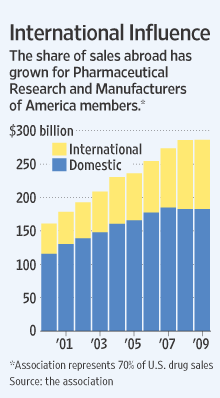
Public ‘misled’ by drug trial claims
Doctors and patients are being misled about the effectiveness of some drugs because negative trial results are not published, experts have warned. Writing in the British Medical Journal, they say that pharmaceutical companies should be forced to publish all data, not just positive findings. The German team give the example of the antidepressant reboxetine, saying publications have failed to show the drug in a true light. Pfizer maintains its drug is effective. Reboxetine (Edronax), made by Pfizer, is used in many European countries, including the UK. But its rejection by US drug regulators raised doubts about its effectiveness, and led some to hunt for missing data. This is not the first time a large drug company has come under fire about its published drug trial data.

